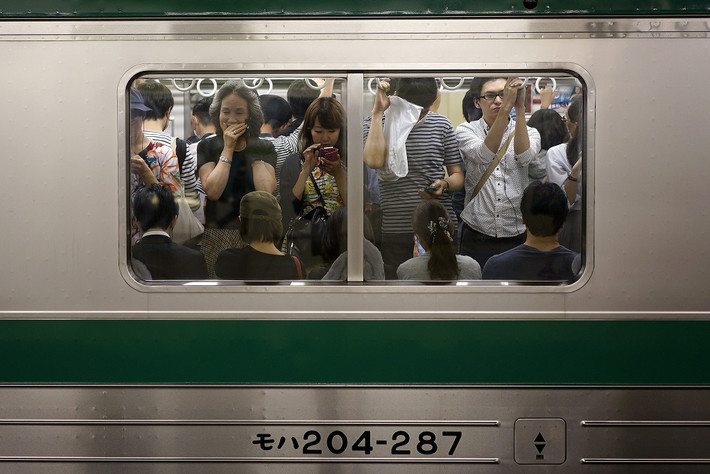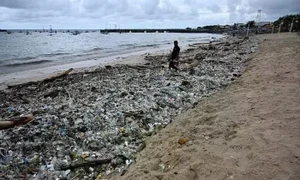
In Japan, public transportation can be a minefield for women. In crowded trains, corridors or escalators, they may come across "chikan", a Japanese word that describes men who inappropriately touch women in public transportation or try to take pictures under women's skirts without consent, also known as "upskirting".
The bill targeting this type of "photographic voyeurism" would penalise those who take and disseminate sexual images taken without consent, including those taken by chikan.
The law is part of a series of measures against sexual violence, including broadening the definition of rape and penalising "grooming", where an adult establishes a rapport with a minor in order to exploit them for sexual favours or photographs, a phenomenon which mainly occurs online.
In a country where young girls are often sexualised in the media, some of the victims of sexual harassment in Japan are just teenagers, according to our Observer Maki Abe, who founded an association to raise awareness of sexual violence against young people. She has worked for more than 20 years to combat sexual violence against minors.
The phenomenon has occurred for years in Japan, to the extent that some trains even have a car reserved for women during rush hour. Until now, only local laws, which vary from region to region, penalise sexual harassment and photo voyeurism on public transportation.
In all the train stations in Japan, there are posters like this one to warn women about 'chikan'. But the message is often, like on this picture I took: 'You have to be careful', 'You have to watch out behind you'.
Sexual education in Japan is very behind. Students don't have enough education, especially on sexual consent.
And Japan is very behind on preventing sexual abuse, so in the law system and prevention education, they don't have the correct information. Even if girls are able to speak up, if the person who is listening doesn't have the right knowledge, the case will not be treated by the police or the teacher.
The bill calls for prison sentences of up to three years or a fine of up to 3 million yen (about 20,000 euros) for sexual harassment and photo voyeurism.























